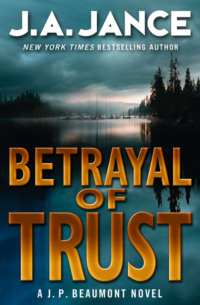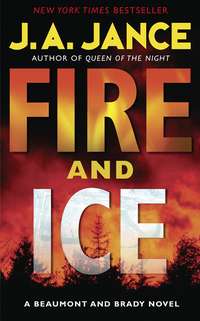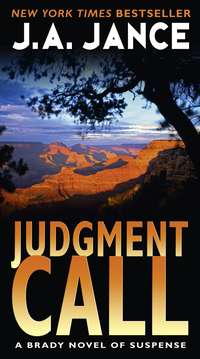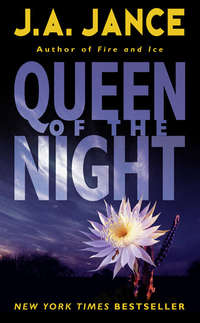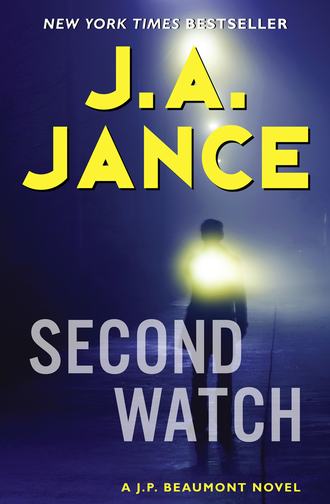
Полная версия
Second Watch
I did as I was told and went about snapping one picture after another.
Eventually the M.E.’s beefy helpers turned up with their gurney. By then it was clear that the only thing in the barrel besides the body was the rest of the grease. The victim was naked. There was no clothing and no identification, so the investigation’s first problem was going to be identifying who she was. As the M.E.’s assistants wrestled the dead woman into a body bag for transport, Powell motioned to me.
“Let’s work our way up the hill.”
Spotting the track was easy enough, even if climbing the hill to follow it was not. The rolling barrel had left a clear path as it careened down the hill. In the process it had torn through thickets of blackberries and left a trail of flattened ferns and broken sprigs of grass along with slick patches of slimy spilled grease. Gravity had worked for the barrel on the steep hillside, but it worked against us. So did the thick tangles of blackberries. If you’ve ever hiked through blackberry brambles, you know climbing uphill through them isn’t exactly a stroll in the park.
The sun was almost gone by the time we finally made it to the spot where Donnie and Frankie had found the barrel hung up on a bramble and pried off the lid. The lid was still there, and so was the stick the two boys claimed they had used to unleash what turned out to be their own private nightmare.
“Poor kids,” Detective Powell muttered. “They had no idea what they were letting themselves in for.”
By then enough time had passed that it was going on full dark. I was using the flash to take a few more photos when Mac came roaring down the hill with Detective Watkins limping along behind him.
“Are you about done?” Mac asked. “I’m parked up there,” he added, pointing toward the top of the bluff.
“Did you see anything important?” Powell asked.
Mac shook his head. “There’s a vacant house up there. It looks like the barrel started down the hill right at the end of the driveway.”
“Any vehicle tracks?” Powell wanted to know.
Mac shook his head. “No such luck,” he answered. “Asphalt.”
I looked to Detective Powell for direction. “You two don’t have to stick around here,” he said. “I’ve called for lights and generators that should be here soon. In the meantime, I’d like you two to go back up and start canvassing the street. See if anyone noticed any unusual traffic coming or going from the house.”
Expecting to be unceremoniously sent back out on patrol, I was glad to be given another job to do. Once we clambered our way to the top of the hill, however, we had a nasty surprise waiting for us. Someone had alerted the media. A clutch of reporters, attracted by the flashes of the camera, stood waiting for us next to the patrol car. Among them was one of my least favorite people in the whole world, a cub reporter named Maxwell Cole.
As I mentioned before, Max and I had been fraternity brothers at the U-Dub. We had not been friends. We became even less so when he showed up at a dance with a very cute girl named Karen. Not only did I snag her away from him at the dance, I married her, too. Talk about adding insult to injury, and Max was still pissed about it. While I was off doing my duty in Vietnam, Max found a way to stay home. He had gone to work for the Seattle Post-Intelligencer, where he was now firmly ensconced on the police beat.
“Hey, Beau,” he said when he saw me. “What’s the deal down there? I understand some neighborhood kids found a dead woman. Can you confirm that?”
He made it sound like we were the best of pals. The other reporters in the group, thinking he had some kind of an in, backed off and gave him the floor. It did my heart good to tell him, along with the rest of his newsie gang, everything I was allowed to say, which was pretty much nothing.
“Sorry,” I said. “Can’t confirm or deny.”
Grimacing, Max went trudging after MacPherson, but Mac already knew there was no love lost between me and the P-I’s self-proclaimed ace reporter.
“You heard the man,” Mac said. “Mum’s the word. Check with the public information office.”
We got into our patrol car. Mac took off like a bat out of hell, and nobody bothered trying to follow us. If they had, they wouldn’t have had to go far, since we stopped again two blocks up the street, where Amherst Place West intersects with W. Plymouth Street.
“You take that side, I’ll take this one,” Mac said. “And you could just as well skip the house back there on the corner of Twenty-third. That’s where Donnie and Frankie live. Their mother was a screaming banshee when we brought the boys home. She threatened to tear those poor kids limb from limb when she found out they had been down on Pier Ninety-one instead of where she thought they were, safely stowed at a movie.”
“She was probably just worried about the boys messing around down by the railroad tracks,” I suggested.
Mac gave me a wink and a lip-smacking, lecherous grin. “Maybe so,” he said. “But I doubt it.”
“What do you mean?”
“I think it had a lot more to do with Watty and me interrupting whatever it was she and her boyfriend were doing when we brought the boys home. From the looks of it, I’d say the two of them were getting it on pretty hot and heavy. The guys from Homicide are the ones making the big bucks. Since they’ll most likely have to talk with the boys again, why should we have to deal with a lady tiger?”
Why indeed? With that, Mac and I hit the bricks.
It was close to dinnertime. As expected, the warm April weather had brought out the early-bird outdoor cooks. Smoke from a dozen separate Weber grills filled the evening air on the southern end of Magnolia Bluff. Residents of Seattle recognized this early bit of faux summer, the exact opposite of Indian summer, for what it was. Soon the sunshine and dry weather would be gone, not to return until sometime in early July. The people we dragged in from their backyard activities weren’t especially welcoming or eager to talk to us. Other than using up some shoe leather, we gained precious little information in the process.
The house where the barrel’s track originated had been vacant for several months, caught up in the midst of a rancorous divorce. One neighbor mentioned that she thought a sale was now pending, even though the real estate sign in the front yard didn’t mention that. No one had noticed any unusual activity around the house in the past several days, although the same neighbor, a Mrs. Jerome Fisk, said she thought some of the neighborhood kids had been hanging around in the backyard of the vacant house and using it as a hideout for smoking cigarettes.
“I didn’t turn them in for it, though,” she told me. “Those poor boys have a tough enough row to hoe. I didn’t want to add to their troubles.”
“You’re saying what exactly?” I asked.
“Their mother, you know,” Mrs. Fisk added confidentially. “Amelia Dodd’s a bit of a wild thing. Gentlemen callers coming to the house at all hours of the day and night.”
“Gentlemen callers? You mean there’s no husband in the picture?”
“Not so as you’d notice,” Mrs. Fisk replied. “There are probably plenty of husbands in that group of men swarming around the honey pot, but I doubt any of them belong to her.”
“You’re saying she’s a … professional?” I asked.
Mrs. Fisk shrugged. “Believe me, she has plenty of special male friends, and she doesn’t appear to have any other kind of job, so you tell me. When I see those two boys left to their own devices so much of the time, it breaks my heart.”
I know more than a little about what it’s like to be raised as a fatherless boy. I looked at the houses on the street. When I was growing up, my mother and I lived in a tiny Ballard-area apartment located over a bakery. Because of the ovens down below, the apartment was warm in the winter without our having to turn on the heat, but it was hot, hot, hot in the summer. I remember very clearly that when clients came to my mother’s place for fittings, I was expected to make myself scarce.
Nevertheless, this Magnolia neighborhood was a big step up from the walk-up apartment where I was raised. I suppose there were plenty of people back then, including my own grandfather, who called my mother a “loose” woman because there was no man in our lives and no ring on Mother’s finger. Her fiancé, my father, died in a motorcycle wreck soon after she got pregnant and before they had a chance to marry. Defying her father’s wishes, Mother refused to give me up for adoption. Instead, she had raised me entirely on her own. At the time I was interviewing Mrs. Fisk I had no idea that one day in the far distant future I would be reunited with long-lost members of my father’s family.
At the time, I regarded Mrs. Fisk as a mean-spirited gossip, a little too eager to condemn her attractive young neighbor to anyone who would listen. It seemed likely that any number of old biddies had probably concocted and spread similar stories about my own mother. In many close neighborhoods and small towns, the single mother was, and still is, a target of scrutiny, if not suspicion.
But even if it was true—if working as a lady of the evening turned out to be Frankie and Donnie’s mother’s only means of support—she must have been successful in her line of work. After all, Magnolia Bluff was one of Seattle’s solidly middle-class neighborhoods. If a working gal was able to earn enough money to maintain a house there, she had to be more of a call girl than a streetwalker, one with a well-heeled, generous clientele with maybe a few power brokers added into the mix.
I may have been relatively new to the force, but I was smart enough to figure out that in a pissing match between power brokers and a uniformed cop, I was the one who was going to come up with the short end of the stick.
In other words, Mrs. Fisk’s comments combined with what Mac had said earlier about the mother in question made me more than happy to give Frankie and Donnie’s house a wide berth. By the time we finished our canvass of the neighborhood and returned to the patrol car, the enticing aroma of grilling burgers had done its trick. It was now long after dinnertime, and we were both famished.
“Dick’s?” he said, putting our police-pursuit Fury in gear.
“Amen,” I said.
And that’s where we headed, for Ballard and the nearest Dick’s Drive-In.
When the first Dick’s opened in the fifties, it was in Seattle’s Wallingford neighborhood. For a kid too young to drive back then, it was close but no cigar. The only way to get there was to drive. I was a junior in high school when the one in Ballard opened, and it was cause for a school-wide celebration. That’s where we headed now.
We were parked in the car munching burgers and fries when Mac said, “I wouldn’t mind a piece of that.”
For a moment I wasn’t sure if he was talking about my burger or about the shapely carhop who had just delivered our food. Turns out it was neither.
“I’m talking about Frankie and Donnie’s mom,” he explained. “The woman may have been mad as all hell, but she was a dish, all right—blond, stacked, and gorgeous.”
That was when I finally got around to telling him what Mrs. Fisk had said about Frankie and Donnie’s mom. When I finished, Mac shook his head sadly. “Too bad. She’s probably out of my league.”
“What’s the matter with you?” I said. “You’re married.”
“That’s right,” he said. “But I’m not dead, and neither are you.”
CHAPTER 4
Somewhere along the way I had fallen back asleep. When I awoke again it seemed like I was still smelling one of Dick’s hamburgers, but it turned out Mel was sitting in the chair next to my bed, munching away on a burger of her own.
“Hey, sleepyhead,” she said. “When are you gonna wake up? It’s time.”
It took a moment for me to make the transition from the world as it was in 1973 to the world as it is now, and it was quite a jolt.
“That was weird,” I said.
“What was weird?”
There was a lot of stuff in my head right then that I didn’t particularly want to discuss with Mel Soames. Generally speaking, we didn’t talk about my life with Karen back when the kids were little or about what I referred to as the “good old days.” Discussions of those always seemed to introduce a certain level of tension into the conversation.
I suppose I need to clarify this some. I’m not talking about old love affairs here. I’m referring to my carousing days when I’d have a drink or two before going to work without giving it a second thought. That, by the way, is one of the reasons I’m in AA now. So rather than go into any of those gory details with Mel, I glossed them all over.
“I was dreaming about hamburgers,” I said, “and here you are eating one.”
“Sorry about that. I was hungry, but don’t expect me to share, because you’re not allowed solid food yet. Jackie will be back in a minute.”
“Who’s Jackie?”
“Your nurse. She’s on a break, but she gave me strict orders before she left. You can have water or you can have broth. That’s it.”
Right that minute, neither water nor broth was very high on my wish list. In fact, I still had to fight to keep my eyes open.
“Whatever they gave me really knocked me on my butt,” I said.
“It’s supposed to,” Mel told me. “It’s called anesthesia.”
The same nurse reappeared—the stout one. This time I noticed that her name badge said she was Jackie Morse. That sounded familiar. Wait, Nurse Jackie. Wasn’t that a television show of some kind? From what I remembered of the show, that particular Nurse Jackie wasn’t exactly a picture of sweetness and light. It turned out this one wasn’t, either.
“Okay,” she said after checking my vitals one more time, just for the hell of it, “let’s give that broth another try.”
She handed me a cup with a straw in it. The stuff inside the cup was no longer hot—far from it—but to my surprise, when I swallowed a sip, it actually tasted good.
“We’ll wait long enough to check your vitals one more time, Jonas,” she said. “If you’re still steady as she goes, we’ll get you wheeled out of here and up to your room. That way you’ll be somebody else’s problem.”
When people call me by the name of Jonas, I can never quite wrap my head around the idea that I’m the person they’re addressing. Of course, in Nurse Jackie’s case, when she used the word “we,” it wasn’t the royal we, by any means. It was the dismissive form of the word, the one favored by grade school teachers talking down their noses to classrooms full of bored kids.
It must have been the better part of another hour before Nurse Jackie finally pronounced that “we” were sufficiently recovered for me to leave the recovery room. As two uniformed attendants wheeled me into the hallway, I felt as though I had finally graduated from one of the levels of Dante’s Inferno. They rolled me down the hall, into the elevator, and then up into a room that was bigger than some hotel rooms I’ve seen. It had windows, a view of other buildings, and room for more than one bed, although only one bed seemed to be called for at the time.
Once in my new digs I was sufficiently awake to be less concerned about Nurse Jackie and far more worried about what was to come. What if my new knees didn’t work? What if I fell flat on my face the first time they tried to stand me up? What if I was destined to spend the rest of my life on one of those little scooters that they’re always advertising on the boob tube? Mel was right there, of course, but I didn’t mention any of those worries to her. Why would I? Instead, I lay in the bed, with Mel dozing off and on in the chair beside me. The only sound in the room was the soft whisper of the bedsore-preventing mattress under me. Other than that, I did my worrying in complete silence.
Fortunately, however, the orthopedic group didn’t leave me there stewing and worrying forever. In advance of the surgery, I had read all the “what to expect” booklets my orthopedic surgeon had sent out. Yes, I had read the part about the “recovery team” getting people back on their feet as soon as possible. Somehow I didn’t expect it to happen so soon, not the very same day as my surgery, but it did.
A bare three hours after I had been rolled into the new room, I was approached by a band of three waiflike young women, stick figures every one, who announced they were my PT squad and that they were there to get me out of bed and “up and at ’em,” as the one who looked to be in charge told me jauntily.
I didn’t share their enthusiasm, or their positive mental attitude. My first, unspoken response was a heartfelt “No way!” I was convinced it was much too soon and that the very idea of expecting me to stand up was an invitation to disaster. I’m sure I outweighed all three of them put together. I doubted they’d be able to support my weight. I could see myself falling to the brightly polished floor and smashing the new synthetic joints in my knees, to say nothing of my face, to pieces, but it was three to one—four, counting Mel—and they were not to be dissuaded. With the help of a strategically placed hoist, they pulled me up into a sitting position and then eased my legs over the edge of the bed. Once I was upright, they planted me in front of a walker.
I remember taking a very deep breath. The next thing I knew, I took my first step and didn’t fall down. That’s when a very real miracle happened. For the first time in at least ten years or so, I realized that my knees didn’t hurt. Of course, I was on plenty of pain meds at the time, but the steady pain that had ground away at me for years, waking and sleeping, simply wasn’t there anymore.
With my helpers and Mel cheering me along, I took one small, careful step after another. I didn’t walk all that far—out of the room and into the hallway. I went as far as the nurses’ station and then back to my room, where they returned me to my bed. The whole excursion left me feeling inordinately proud of myself—as though I’d just run the equivalent of a marathon. Before my head hit the pillow, I was back in never-never land.
Through the years, booze has always been my drug of choice—booze and, a long time ago, cigarettes, too—but I’ve never been tempted to wander into the world of harder drugs. For one thing, my fear of needles makes it unlikely that I’d ever manage to be a successful IV drug user. But now, for the first time, lost in the dreamland world of medicinal narcotics, I got a taste of their allure.
For one thing, under the influence of the pain meds my dreams were astonishingly vivid and, in some cases, entirely welcome. Regular dreams tend to dissipate the moment I awake, but that was not the case here. The details stayed with me long after the dreamscape itself was gone. For all intents and purposes, it was a trip down memory lane.
Scenes from forty or even fifty years ago danced back through my head in full Technicolor splendor and in almost 3-D detail. In one, I was standing outside a hospital nursery looking down at the sweetly sleeping swaddled baby that was my newborn son, Scott. In another, I was a callow twenty-year-old youth, still a student at the University of Washington, sitting at my mother’s hospital bedside and watching the morphine drip as she slowly, ever so slowly, lost her battle with breast cancer.
In others I walked long-ago crime scenes in more or less chronological order with partners both living and dead. In one I stood on the sidelines while medics tried to revive Milton Gurkey when he suffered a fatal heart attack after a violent confrontation with a homicide suspect. In some I was back in the car with Ron Peters, my former partner, when he was a young, gung-ho guy as well as a newly minted vegan. At the time, he hadn’t yet taken his nosedive off a highway overpass and wasn’t in a wheelchair, and I was still trying to figure out if I could work every day with a partner who wasn’t a carnivore. In others, I was partnered with Big Al Lindstrom. In one I was even back in the elephant enclosure in the Woodland Park Zoo.
Eventually, in the dreams, as I had in real life, I found myself working with Sue Danielson. Even in the depths of sleep, my heart filled with dread, knowing that soon I would once again find myself in Sue’s living room reliving the horror that had been part of my life from that day to this. Unable to help her, I had watched my partner and a great cop bleed to death on the floor of her own living room, gunned down by her enraged estranged husband. By the time I finally awoke fresh from the all-too-familiar scene of Sue’s fallen-officer memorial, I was exhausted, physically and emotionally, and my cheeks were wet with tears.
That was about the time I began questioning whether I was dead or alive. Maybe I had died on the operating table and this trip through dreamland was God’s way of having a little joke with me. Maybe He was using pieces of a lifelong jigsaw puzzle to allow my whole life to pass before my eyes in one disjointed scene after another.
But what had jostled me awake this time was the appearance of yet another nurse. This one was a beefy, much-tattooed guy named Keith who came to take my vitals, check my drains, and see if I needed more pain meds.
Why do they do that? People are in hospitals for a reason—to get better from an illness or to recover from surgery. If patients are sleeping peacefully, why wake them up to see if they’re all right? Why not let them sleep until they wake up on their own, at which time they can ring the bell and let someone know if more medication is in order? But let’s not even go there, because that’s not the way hospitals work, and it isn’t going to happen.
So after Nurse Keith confirmed that I was still alive, if not kicking, I tossed around for a while. Wide awake, I would have been glad to have Mel’s company about then, but when Keith had woken me up, I’d finally insisted that she go home to get some rest. She had been at the hospital all day long and would willingly have stayed longer, but I told her I was in good hands and that she was the one who needed relief. She had issued instructions to all our friends that no one was to show up at the hospital that first day. It comes as no surprise that not a single person had dared disobey Mel’s orders.
So there I was, alone and awake, with only the haunting memories elicited by those vivid dreams to keep me occupied. Karen was always a big Simon and Garfunkel fan, and one of her favorite songs by them was “Sounds of Silence.” In this case, the sleeping vision that was planted in my brain was that of the dead body of a naked girl, spilling out of a yellow barrel in the bright afternoon sunlight. Her long blond hair was in a greasy tangle and her fingernails, poking out of the mire, were covered with garish red polish.
Since I didn’t have anything else to think about at the moment, I walked myself back through that pivotal case that would eventually pull me out of a patrol car and drop me into a desk in Homicide on the Public Safety Building’s fifth floor.
That Sunday afternoon it didn’t take long for Larry Powell and Watty Watkins to sort out the identity of the Girl in the Barrel. Her name was Monica Wellington. She was an eighteen-year-old honor student, valedictorian of her high school graduating class at Leavenworth High School, and a recently enrolled freshman at the University of Washington.
On Friday night, she had gone out on what was purported to be a blind date. When she didn’t come back to the dorm, her roommates had called her parents in Leavenworth on Saturday to let them know. The parents in turn were the ones who had called in a missing persons report to Seattle PD later on that same day.
Missing persons reports often get short shrift, but Seattle was starting to see a flurry of women going missing, particularly young coeds. We were right on the cusp of what would later be called the Ted Bundy era. If a prostitute or two went missing back then, no one paid a lot of attention, but when female students from solid families, especially girls in good academic standing, went missing, some effort was made to connect the dots. In this case, the dots were connected early on.


